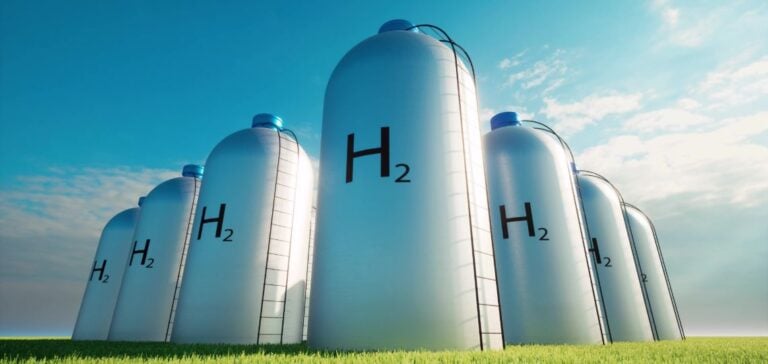The Canadian company Primary Hydrogen Corp. (TSXV: HDRO) recently announced the acquisition of two new natural hydrogen exploration projects in Newfoundland and Labrador. These acquisitions, based on meticulous geological analysis, aim to identify and develop natural hydrogen resources through geological processes such as serpentinization.
Geological Context of the Projects
Mary’s Harbour H2 Project, located on the southeastern coast of Labrador, spans 32.6 square kilometers across 131 claims. This region is distinguished by the presence of ultramafic rocks such as gabbros, pyroxenites, and peridotites, characteristic of the Grenville Province. These geological formations are conducive to hydrogen generation through serpentinization, a chemical process occurring when iron-rich rocks interact with water. Additionally, the deep fault systems in the region offer potential conduits for the migration of hydrogen generated at depth.
Point Rosie H2 Project
The Point Rosie H2 Project, located on the southern coast of Newfoundland, covers 52.6 square kilometers across 211 claims. This site is characterized by mafic intrusions and volcanic sequences, particularly favorable for natural hydrogen production. The faults in this region enable not only serpentinization but also the migration and accumulation of hydrogen within these rock formations.
Diversification Strategy and Government Support
According to Benjamin Asuncion, CEO of Primary Hydrogen, these projects reflect the company’s organic growth strategy, focused on identifying geologically promising sites. This expansion occurs in a context where the federal and provincial governments of Newfoundland and Labrador actively support the development of the hydrogen industry, particularly through infrastructure and policy incentives.
Technical Expertise and Long-Term Vision
The projects have been evaluated by specialized consultants who previously contributed to the commercial discovery of hydrogen in Mali. This expertise bolsters the company’s confidence in the potential of these sites. Moreover, these acquisitions add to Primary Hydrogen’s existing portfolio, which already includes projects in Ontario and British Columbia.
Through these initiatives, Primary Hydrogen aims to position itself as a key player in the exploration and production of natural hydrogen, an emerging sector addressing the growing demand for clean energy.






















